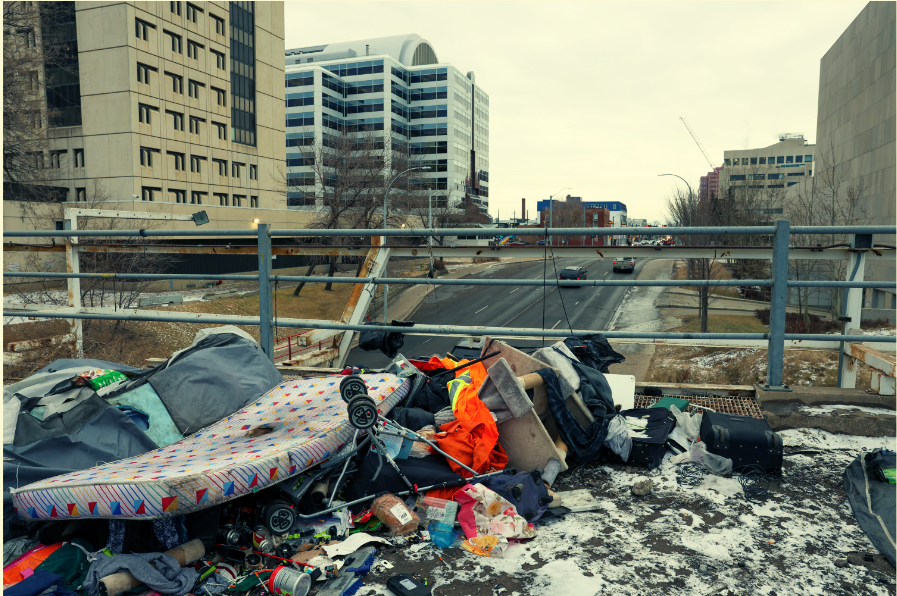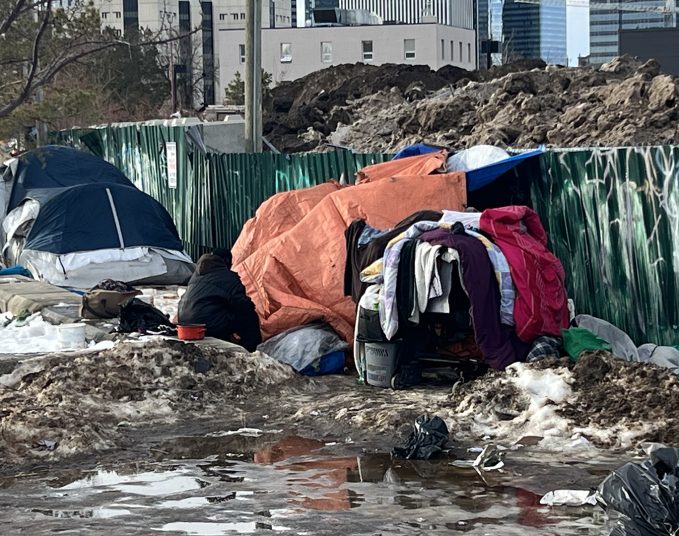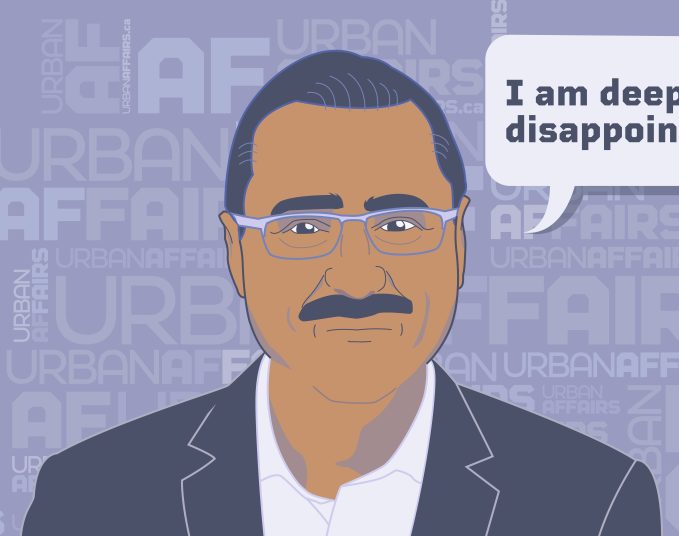When Alexandra Flynn began interviewing unhoused people about the belongings they had lost during encampment evictions, she knew there would be tents, sleeping bags and clothing on the list. What she didn’t expect, however, was how much of what was confiscated and discarded would be family heirlooms, memorabilia and sentimental treasures.
“What people told us was devastating,” Flynn, an associate professor at the Allard School of Law in British Columbia said. “They lost not just belongings that mattered for their survival, but things that mattered to their humanity. Things like photo albums, their mother’s ashes, their baby’s first shoes.”
Flynn, who together with colleagues from the University of Ottawa, has been studying the property rights of the unhoused, said those lived experiences are not atypical of encampment evictions across Canada.
“There’s a lack of humanity in the law around understanding that these are people’s things. This is their identity, their survival” she said.
It’s a reality that’s been faced by hundreds of Edmontonians who, earlier this month, faced eviction from eight unhoused encampments. For many of them, eviction didn’t just mean finding somewhere new to live, but also the loss of much, if not all, of their property.
Municipal Rights vs. Property Rights
Regardless of your feelings about the evictions — which Edmonton Police Service (EPS) and the City have said were sanctioned due to unsafe living conditions, issues of organized crime within the encampments and tens of thousands of complaints — it stands to reason that experiencing homelessness doesn’t strip you of your rights to ownership, even during an eviction. But according to Flynn, that’s not always the case.
“You would think they would have property rights because it’s their property,” Flynn said. “But instead, what happens on the ground is that because their property is located on other people’s land — namely municipal land — and if there’s a bylaw or policy in place, which there almost always is, the police will come in and say based on that bylaw, you can’t have your belongings here.
“It looks instead like municipal land ownership trumping people’s rights to their belongings.”
In Alberta, tenants typically have a minimum of 14 days to vacate when faced with eviction. But, in the case of these encampment evictions, the City only mandates 48 hours of notice and that was only written into policy after pushback from the public and advocacy groups like the Edmonton Coalition on Housing & Homelessness (ECOHH), who have filed a lawsuit against the City alleging the evictions violate the Charter rights of encampment residents. If residents don’t remove their property — which can be challenging if a person is relying on just a shopping cart, bicycle or their own hands and feet — then the stuff is often disposed of.
Some cities have, according to Flynn, stored confiscated property, but the practice is uncommon. Urban Affairs reached out to the City to ask whether property taken during encampment clearings was discarded or stored. The City said residents are free to take or remove their property prior to, and during, encampment evictions and issued the following statement:
“To ensure the health and safety of persons involved in the cleanup, most items left abandoned at the site must be treated as unsafe, unsanitary and biohazardous. This is due to the presence of refuse, human waste, as well an ongoing Shigella disease outbreak.”
City of Edmonton spokesperson Karen Zypchyn said that personal effects such as wallets, ID, credit and debit cards and other personal, identifiable items are turned over to the Edmonton Police Service, but didn’t state what EPS does with those items.
But whether a person can move their belongings or not typically doesn’t make a lot of difference because, as Flynn notes, there aren’t many areas to where they can legally move their property.
“If you look at all the different regulators that get involved — shelter providers [who often have limits or restrictions on the number of personal items a person can store], transit authorities, parks bylaw officers — there’s really no safe place people can leave their stuff,” Flynn says. “Even if they could pack up when they’re given an eviction notice, where can they take it to?”
Compounding a Dangerous Situation
Nadine Chalifoux is chairperson of ECOHH and has worked in supporting encampment residents. She experienced houselessness for more than two years, including being evicted from encampments in Edmonton more than 10 years ago (a testament to the longevity of our city’s struggle to meaningfully address this issue).
Chalifoux said when property is removed, people often still face the same living conditions, but are now without what little they had and with forecasted weather expected to plunge to a harrowing -38 Celsius this weekend, the loss of a tent, coat or sleeping bag right now can prove dangerously hard to remedy.
“People [often] don’t get to take their clothes, tarps, pillows, sleeping bags. Any of that stuff,” she said. “Where do you go to get that back? A lot of it is brought from concerned citizens or social agencies.”
Is There Any Recourse?
So, what recourse is there for people looking to reclaim their property or seeking compensation for what was lost? Well, not much, according to Flynn.
“We have structures in law like small claims court, or you can challenge a decision, but nothing is specifically laid out,” she said. “There’s nothing set up to deal with this issue.”
But even options like small claims court can prove challenging to access for those who, as Chalifoux lays out, don’t typically have access to the internet, cell phones or fixed addresses, particularly once displaced. On top of that, unhoused people face other barriers — like cost and location — to accessing something like small claims court.
Gabriel Chen, a senior counsel at Calgary Legal Guidance and the author of the Charter of Homeless Rights in Alberta, says for this case specifically, the likelihood of receiving compensation for lost property is slim.
“In this case, for the encampments, one of the challenges is that if the order that’s been issued around the specific eight encampments … sets out terms about things that can be disposed of … then it will be pretty hard to challenge that in terms of stopping it, or trying to get compensation if property is damaged, lost or seized,” he said.
Savvy AF. Blunt AF. Edmonton AF.




